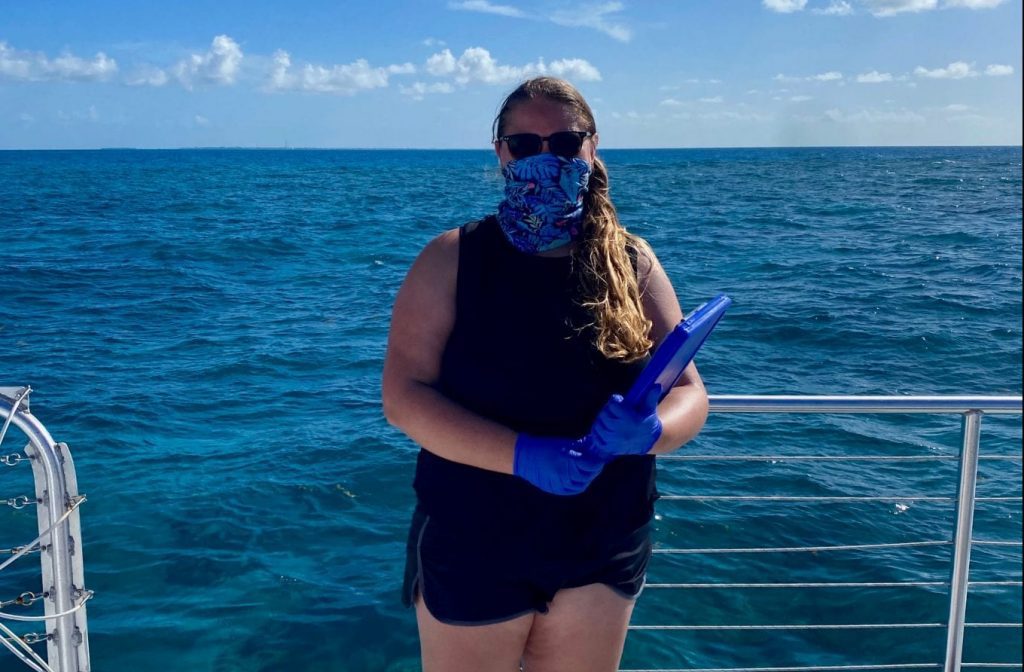Pandemic Inspires Creative New Partnerships to Complete Research

Doctoral student Ashley Reaume pauses in between collecting water samples in the Florida Keys.
When the COVID-19 pandemic restricted travel at UCF, Assistant Professor Michelle Gaither, Ph.D., got creative.
Gaither planned to conduct field research in various parts of the country this past summer to complete some of her research, but COVID derailed those plans. So, she and her team of students came up with another idea that will ultimately help establish baseline information for scientists studying how climate change is impacting the state’s coastal ecology.
Gaither and her team launched a statewide eDNA survey with the help of local businesses, scientists and volunteers. All told, they collected 540 samples of ocean water from 11 sites along Florida’s coast.

Water Samples
Currently the team is identifying the collected environmental DNA using “metabarcoding.” By sequencing the DNA collected in each water sample, the research team can provide a quick inventory of the creatures present within a community.
For example, Gaither’s lab has already identified more than 60 species of fish, as well as bottlenose dolphins and sea turtles that call the Indian River Lagoon home.
The collection of data should help answer some big questions such as what influences community shifts in aquatic environments and what impacts their distribution.
“We want to know what influences the distribution of certain fish species in the state of Florida,” said doctoral student Ashley Reaume, who works in Gaither’s lab. Recreational fishing is a big part of the state economy driven by tourists who come to catch sea trout, snook and red drum.
“Traditional surveying is a massive undertaking, but eDNA shortens the process by providing a snapshot of the local marine populations,” Gaither said. “We couldn’t have done it without community help.”
Fury Watersports President and CEO Scott Saunders generously offered the team the use of a boat for sampling trips; he met Gaither through the National Center for Integrated Coastal Research (UCF Coastal). Saunders is a big fan of the center’s work and has helped on other research projects in the Key West area where his business is based. Saunders is also a member of the UCF Coastal advisory board, and has been crucial in developing research and outreach activities in the Key West area where his business is based.
“The reason this approach is so useful is that you can get an assessment of species diversity and relative abundance in an area with a simple water sample rather than extensive and time consuming surveys that may in fact miss less common species,” explained Graham Worthy, Ph.D., director of UCF Coastal.
For doctoral student Emily Farrell, the summer sampling trips were about much more than being flexible. She was inspired.
“People were not just willing to physically help but offered their services, knowledge, and context in support of this project,” Farrell said. “It’s pretty cool the way people can come together in these times and keep the world moving.”
